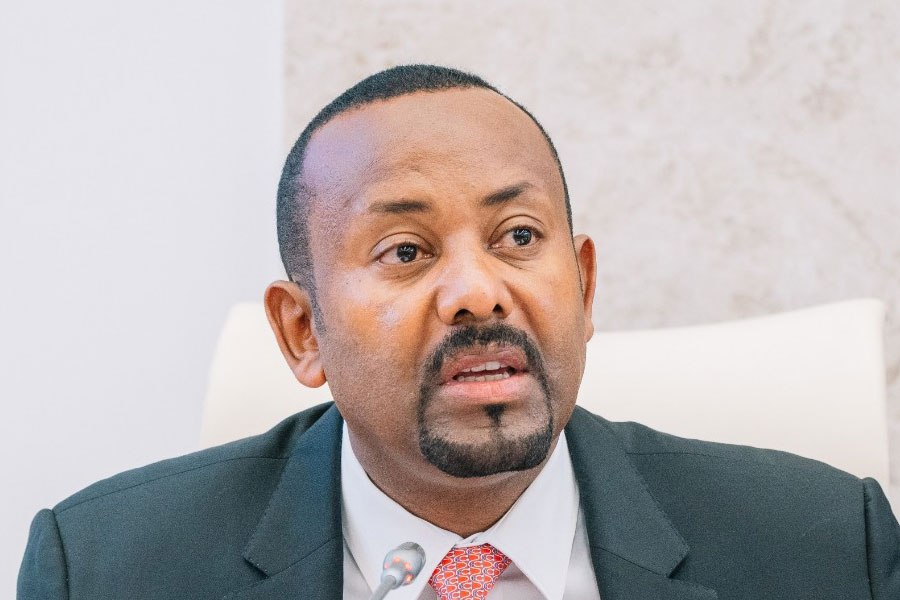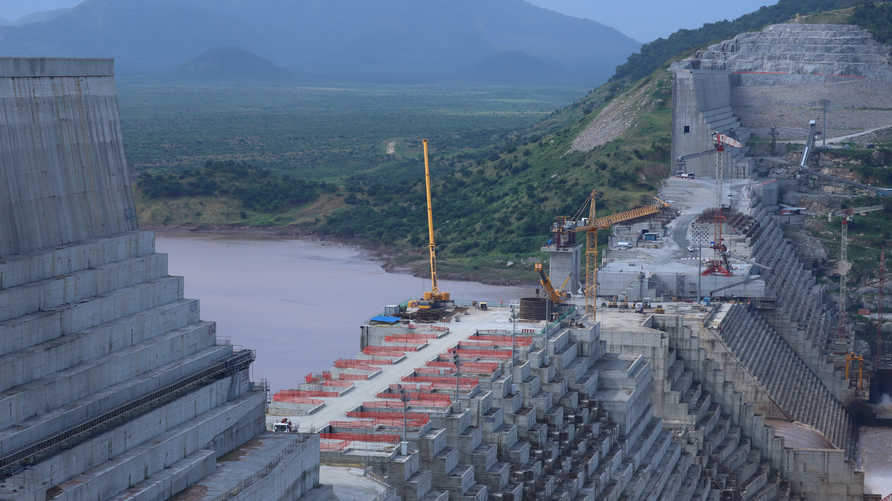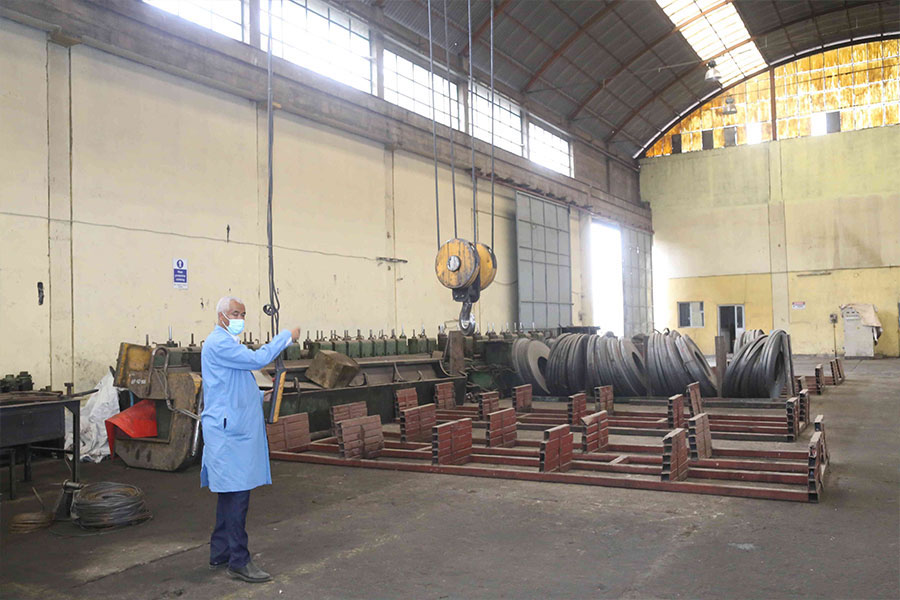
Jun 1 , 2019.
The recent visit by Prime Minister Abiy Ahmed (PhD) to Alle School of Fine Arts and Design, named after the late Alefelege Selam, has created a buzz and there was a lot of excitement both on the part of his aides and the staff of the school. Understandably, it was hailed as the first in 46 years when an Ethiopian leader set foot inside the school, which is a few kilometres further up from the Prime Minister`s Office on Lorenzo Te`azaz Road.
The Prime Minister had a tour of the school followed by a discussion with staff, some of whom were since sent to China. It was apparent that the school’s leadership raised their concerns and expressed their frustration over challenges they face in attempting to expand and renovate the school.
No sooner had such an unexpected visit stirred a buzz in social media threads, an event not reported by the broadcast media, than another controversy brewed when city officials decided to bulldoze through a historical school compound located adjacent to the art school.
A plan to open a road that passes by the school has remained a long standing and vexing problem for succeeding city administrations who have struggled with how to solve the problem without damaging the historical school that stood at the location for over a century and is named after Emperor Menelik II.
Were people to feel that this is a consequence of high profile visits by the Prime Minister and the Deputy Mayor, it is hard to blame them. It is evident that the most powerful person in the country has spoken his wishes on the issue, and that none of the institutions concerned would stand up for any of the competing interests whose rights might be infringed upon as a result of the Prime minister’s decision.
Decisiveness is one quality of a leader, and Abiy is anything but indecisive. Even people that do not necessarily see eye to eye with him acknowledge this quality about him. He has shown this character in the way he dealt with the Eritrean rapprochement and the actions he took to expand the political space soon after he took office. His courage in confronting people of power with vested interests can also be admired.
In doing so, he may have the best of intentions at heart, and he may even have the urge to move fast, eager to see positive outcomes that please the populace. But often, mistakes are nothing but strengths pushed too far.
Some worrying signs are emerging that the Prime Minister may be making some impulsive decisions that are best made after careful considerations and extensive deliberations. The instance with the schools is but a relatively light illustration of this. There have been a number of incidents where the Prime Minister’s personalisation of power is apparent.
Abiy’s interest and show of support for the arts, which he has repeatedly demonstrated, is a character to be appreciated, and even the on-the-spot-decisions he makes might ultimately prove to be the right ones. However, this is beside the point.
The issue at hand is that administrative decisions should not be made capriciously without the proper institutional structures and the input of experts and professionals. A unilateral decision by a leader undermines institutions, diverts attention away from other salient issues of state and squanders the focus of the Prime Minister on mundane matters that are best left to subordinates with the right expertise and knowledge to deal the issues.
Many in the bureaucracy and the civil service in this country have been conditioned by successive authoritarian regimes to do only what those in power want to see done. Officials become experts at reading the mood of an all-powerful leader, predisposed to do and parrot everything that the leader wants instead of presenting their unbiased professional opinion directly and honestly.
This culture of unquestioned acquiescence to the dictums of leaders, in the long term, has done a great disservice both to the highest office holder and the country at large. It is a culture that has to change if the nation is to progress. Leaders need the professional class to advise them in making informed and beneficial decisions based on knowledge and expertise, even when such advice is not what they want to hear. It is for their own good, because they need strong institutions that can execute their reform agenda successfully, and citizens derive benefits from such informed decisions.
Public acknowledgement by leaders that their role in the decision-making process is related only to their area of responsibility will go a long way. The current administration is well positioned to learn from the mistakes that its predecessors made in pursuing unilateral decisions. Unfortunately, the results have been in undermining institutions at a great cost to society and citizens.
It is also imperative to remember that the function of a political leader is to ensure that the country has a system of consensus tended by a general will; laws are enacted most inclusively; and institutions are set up to function according to their mandate.
There is little Prime Minister Abiy could accomplish by roaming around and busying himself with projects while exercising power in a Napoleonic fashion. It is better if he could instead focus, prioritise and show determination to see through what is most indispensable to the nation between now and the end of the mandate his current administration assumed.
There has not been a change of government, let alone a regime, as the current political state of affairs is popularly portrayed. The political system remains unchanged as the party in power is still EPRDF, whose claim to office comes from a national election held in 2015. Abiy, who should discipline himself from embarking on long term commitments, has received his mandate from EPRDF, however loosened up its culture of political centralisation has recently become.
His mandate, in general, was limited to bringing back the country from the brink of civil unrest, expanding the political space, rebooting the economy and making sure that credible national elections are held on schedule.
He has done relatively well on arresting the unrest and expanding the political space, while he appears to have found the macroeconomic front challenging. However, his greatest challenge yet, and what will surely become his most significant legacy if he succeeds, is the conduct of credible elections and the peaceful transition of power to whoever wins the votes. Accepting the outcome of a credible election, especially if the coalition he leads were to lose, will require of him so much courage and resolve.
There is a reason why no leader has been able to accomplish this so far in this country. It is a hard task that has proven impossible so far. It will take a Herculean effort and Solomonic wisdom to accomplish it. But what a legacy it would be for Abiy if he can pull it off. It will most certainly be the greatest achievement of his life and something he will always be proud of and be remembered for.
PUBLISHED ON
Jun 01,2019 [ VOL
20 , NO
996]

Fineline | Sep 07,2019

Commentaries | May 31,2025

Radar | Aug 28,2021

Radar | Jul 01,2023

Radar | Feb 17,2024

Commentaries | Apr 11,2020

Fortune News | Feb 29,2020

Fortune News | Aug 27,2022

Viewpoints | Mar 02,2019

Sunday with Eden | Apr 10,2021

My Opinion | 131451 Views | Aug 14,2021

My Opinion | 127803 Views | Aug 21,2021

My Opinion | 125784 Views | Sep 10,2021

My Opinion | 123419 Views | Aug 07,2021

Dec 22 , 2024 . By TIZITA SHEWAFERAW
Charged with transforming colossal state-owned enterprises into modern and competitiv...

Aug 18 , 2024 . By AKSAH ITALO
Although predictable Yonas Zerihun's job in the ride-hailing service is not immune to...

Jul 28 , 2024 . By TIZITA SHEWAFERAW
Unhabitual, perhaps too many, Samuel Gebreyohannes, 38, used to occasionally enjoy a couple of beers at breakfast. However, he recently swit...

Jul 13 , 2024 . By AKSAH ITALO
Investors who rely on tractors, trucks, and field vehicles for commuting, transporting commodities, and f...

Jun 29 , 2025
Addis Abeba's first rains have coincided with a sweeping rise in private school tuition, prompting the city's education...

Jun 29 , 2025 . By BEZAWIT HULUAGER
Central Bank Governor Mamo Mihretu claimed a bold reconfiguration of monetary policy...

Jun 29 , 2025 . By BEZAWIT HULUAGER
The federal government is betting on a sweeping overhaul of the driver licensing regi...

Jun 29 , 2025 . By NAHOM AYELE
Gadaa Bank has listed 1.2 million shares on the Ethiopian Securities Exchange (ESX),...